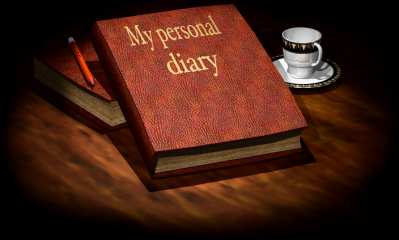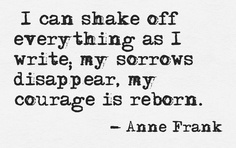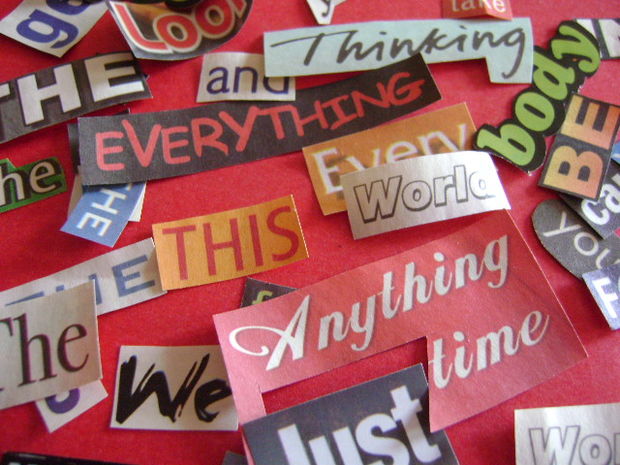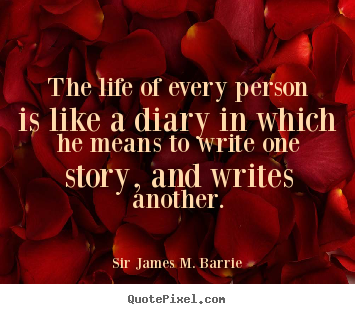Bridget Jones’s Diary is a 1996 novel by Helen Fielding; the novel is written in the form of a personal diary, the novel chronicles a year in the life of Bridget Jones, a thirty-something single working woman living in London. She writes (often humorously) about her career, self-image, vices, family, friends, and romantic relationships. Bridget not only obsesses about her love life, but also details her various daily struggles with her weight, her over-indulgence in alcohol and cigarettes, and her career. Bridget’s friends and family are the supporting characters in her diary. This novel later was filmed with the same title as “Bridget Jones’s Diary. The novel brought the diary writing back in vogue.
 For many writing a diary is like chores. They will write, come what may before retiring to bed. And let me tell you, writing diaries is not as easy as you think. It takes a lot of patience to sit and record things. While recording those things in your own diary, how transparent are you to yourself. It matters a lot. The habit of diary writing comes easily to some and for others it doesn’t. To put it in plain words, usually the people who don’t have the patience to write something down will not maintain a diary. And the ones who can, record the whole lot of things in it. It is a very good habit of maintaining a diary.
For many writing a diary is like chores. They will write, come what may before retiring to bed. And let me tell you, writing diaries is not as easy as you think. It takes a lot of patience to sit and record things. While recording those things in your own diary, how transparent are you to yourself. It matters a lot. The habit of diary writing comes easily to some and for others it doesn’t. To put it in plain words, usually the people who don’t have the patience to write something down will not maintain a diary. And the ones who can, record the whole lot of things in it. It is a very good habit of maintaining a diary.
It plays a role of mind-balm
Jot down everything that happened in the day in it. Good, bad and the ugly also. Recall, each event in a day; your thoughts, experiences, impressions, news, names, dictums, quarrels, fun and jokes. It’s your diary and therefore please jot-down everything as it is. All that you wanted to say but didn’t, why, when, how – follow your thought process and see how relaxing it is. Writing gives a vent to your emotions. Psychologist, Nalini Nair, says that writing diaries is a form of catharsis; which is a process of cleansing or taking away our emotions out. She emphasizes on the fact people who record daily events and jot down everything that they feel are more in touch with their inner emotions. It helps them to introspect more than those who don’t write.
 You know, putting our feelings into words kick-starts an area of the brain involved in rationalizing ideas and impressions. Whatever is upsetting you, keeping a diary could help put things into the right perspective. Research has proved that writing daily in diary allows your ideas to bud, gives a lot of clarity to blurring thoughts. Writing about your feelings can help the brain overcome emotional upsets and leave you feeling happier. Few psychologists took brain scans on volunteers who wrote diaries and those who dint. The result showed that putting feelings down on paper regularly reduces activity in a part of the brain called the amygdala, which is responsible for controlling the intensity of our emotions.
You know, putting our feelings into words kick-starts an area of the brain involved in rationalizing ideas and impressions. Whatever is upsetting you, keeping a diary could help put things into the right perspective. Research has proved that writing daily in diary allows your ideas to bud, gives a lot of clarity to blurring thoughts. Writing about your feelings can help the brain overcome emotional upsets and leave you feeling happier. Few psychologists took brain scans on volunteers who wrote diaries and those who dint. The result showed that putting feelings down on paper regularly reduces activity in a part of the brain called the amygdala, which is responsible for controlling the intensity of our emotions.
It allows you privacy
You don’t want share all of your ideas and thoughts with everybody. But you want to explain yourself why you are doing something, how it’s going to matter you. You want to write about your own opinion, do write it. In today’s ever more connected world, privacy is becoming a constant threat for everyone; a personal diary is a boon. Over some time, you will find your own thought process changing, strengthening, intensifying, maturing, derailing, devastating – it’s fun to read. Your diary is your mirror image.
 You can love yourself, hate yourself, pamper yourself – it helps you to track events. If you read your older diaries, you will discover how you thought and felt about things, your relatives, and friends at the time. It is also a humbling exercise.
You can love yourself, hate yourself, pamper yourself – it helps you to track events. If you read your older diaries, you will discover how you thought and felt about things, your relatives, and friends at the time. It is also a humbling exercise.
 Dr. Jeffery Lieberman – Psychiatrist at Columbia University says “Writing seems to help the brain regulate emotion unintentionally. Whether it’s writing things down in a diary, writing bad poetry, or making up song lyrics that should never be played on the radio, it seems to help people emotionally.” I know many people who are authors, poets, lyricists but only in their diaries.
Dr. Jeffery Lieberman – Psychiatrist at Columbia University says “Writing seems to help the brain regulate emotion unintentionally. Whether it’s writing things down in a diary, writing bad poetry, or making up song lyrics that should never be played on the radio, it seems to help people emotionally.” I know many people who are authors, poets, lyricists but only in their diaries.
Let me tell you, your diary is your travel companion. As you travel in life your diary too does it along with you. It plays a role of a friend, philosopher and guide. It is becomes a custom, once you start writing. And, it is good habit. It allows you to be yourself without any make-up.
Make it a habit: Write it daily at the same time, make it a trigger.
Some write it in the night, some during afternoon, and some early in the morning. It’s advisable to have a certain time of the day to start writing. Just be sure it’s a time that won’t obstruct your writing by other activities.
Once you make up your mind about making it your habit, please announce it to others. I think once we announce our intensions it is difficult to go back on our words. It’s crucial to be fully committed to forming this habit. To do that, it’s best to not make it a private thing, but to commit yourself publicly. Tell everybody around you and you will be surprised that your public commitment will give you the inspiration you need to stay on track.
 Stay in touch with it at least for a month.
Stay in touch with it at least for a month.
Really give all your focus and energy to forming this new writing habit. Rewards are great motivators. Buy yourself a gift. Do them more often in the beginning. Make a list of these rewards before you start, so you can look forward to getting them.
The more consistent you are with your habit, the more inbuilt it will be. You want the habit to be very strongly associated with your trigger, so that each time the trigger happens, the habit happens. This is what makes it a habit. If the trigger happens, and sometimes the habit doesn’t, then you’re not really forming a habit. Make no exception; because one exception often leads to a second, and then a third. It’s like telling yourself, “Just one day I will not write.” Be firm, start writing and see the result.
 Sip a cup of tea or coffee or soup while writing. Listen to some soothing music while writing. See the difference. Writing every day is a energizing. If it does not, if the habit isn’t fun in some way, you’ll lose motivation over time. So keep going at it. Don’t give up. It’s a great habit – you will see only good changes in your life once you get used to writing diary.
Sip a cup of tea or coffee or soup while writing. Listen to some soothing music while writing. See the difference. Writing every day is a energizing. If it does not, if the habit isn’t fun in some way, you’ll lose motivation over time. So keep going at it. Don’t give up. It’s a great habit – you will see only good changes in your life once you get used to writing diary.














































